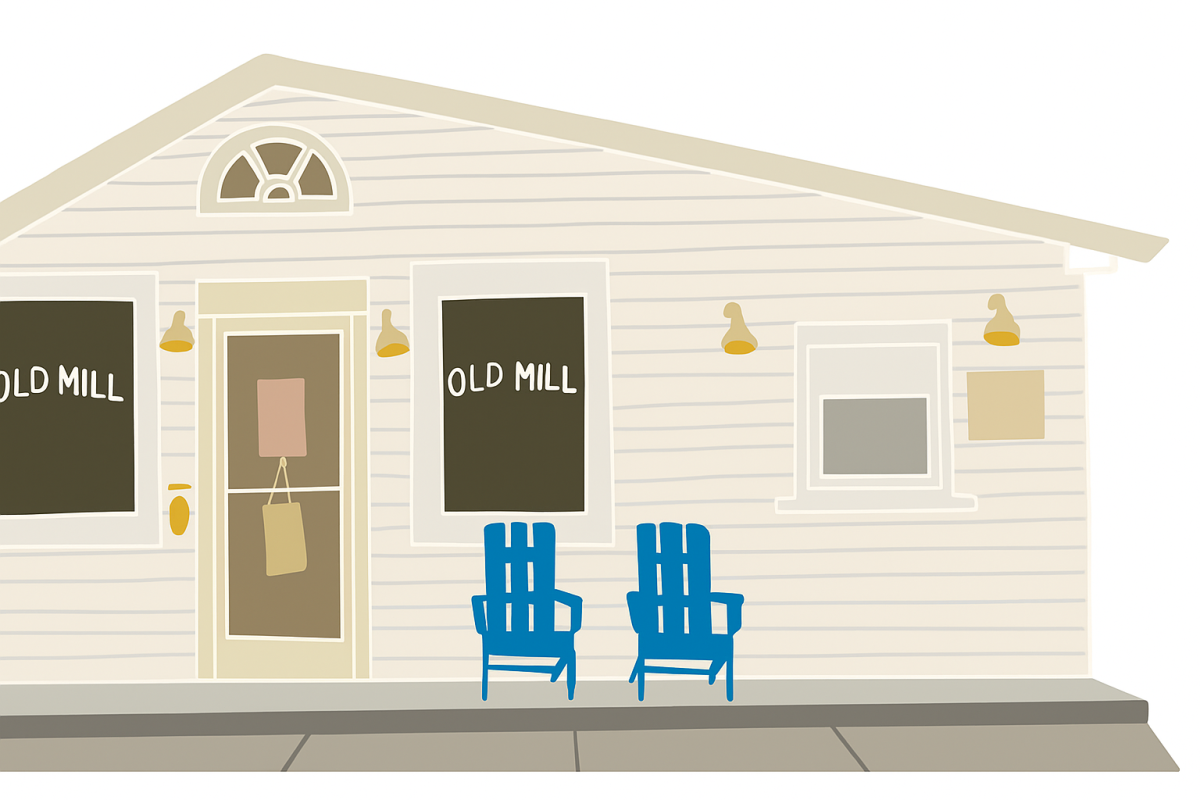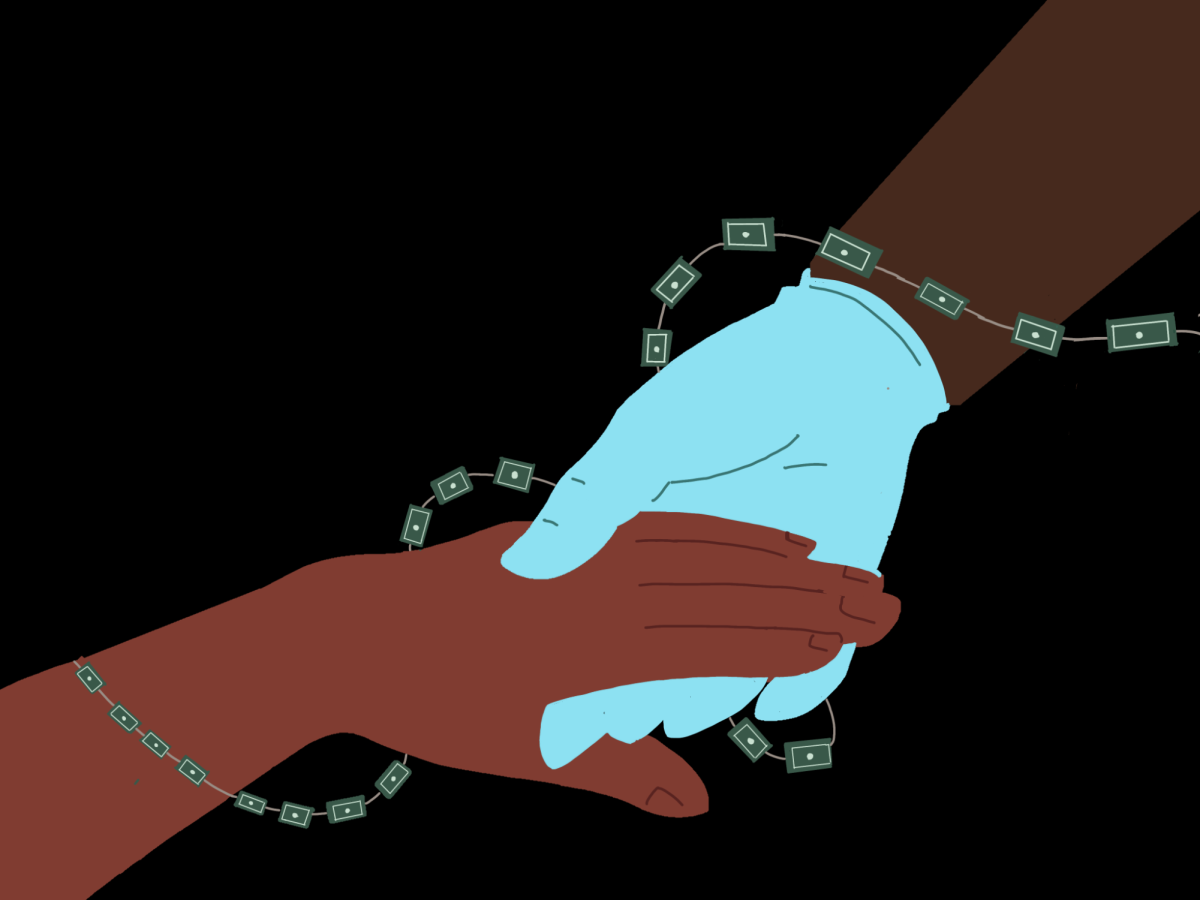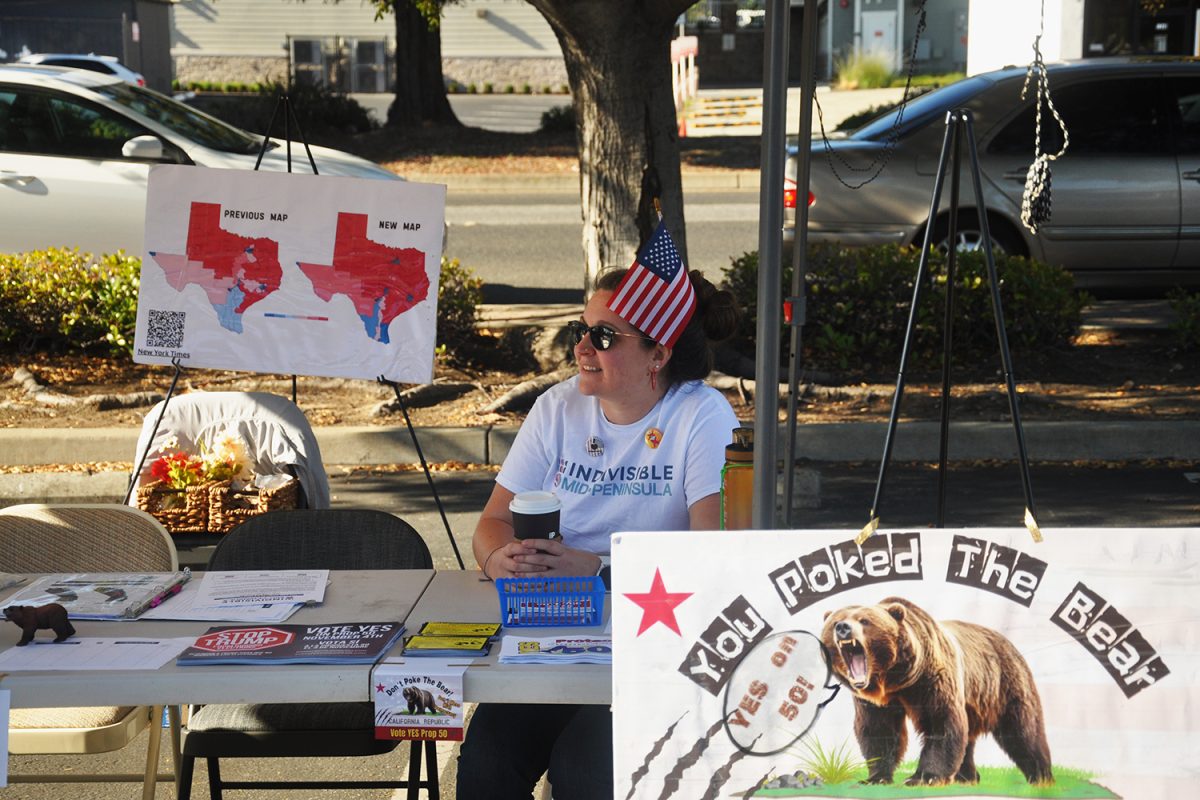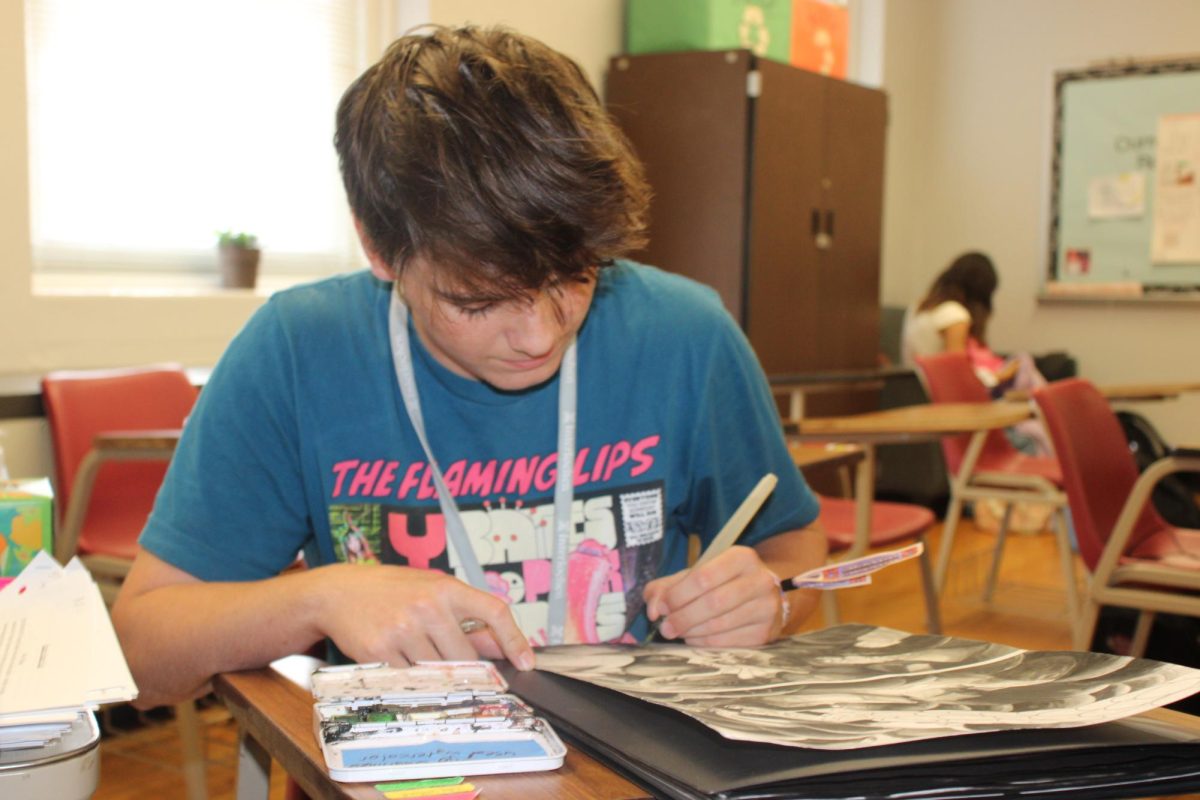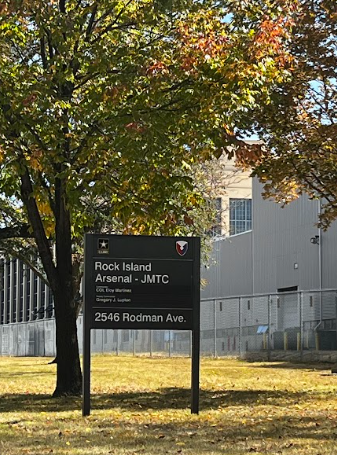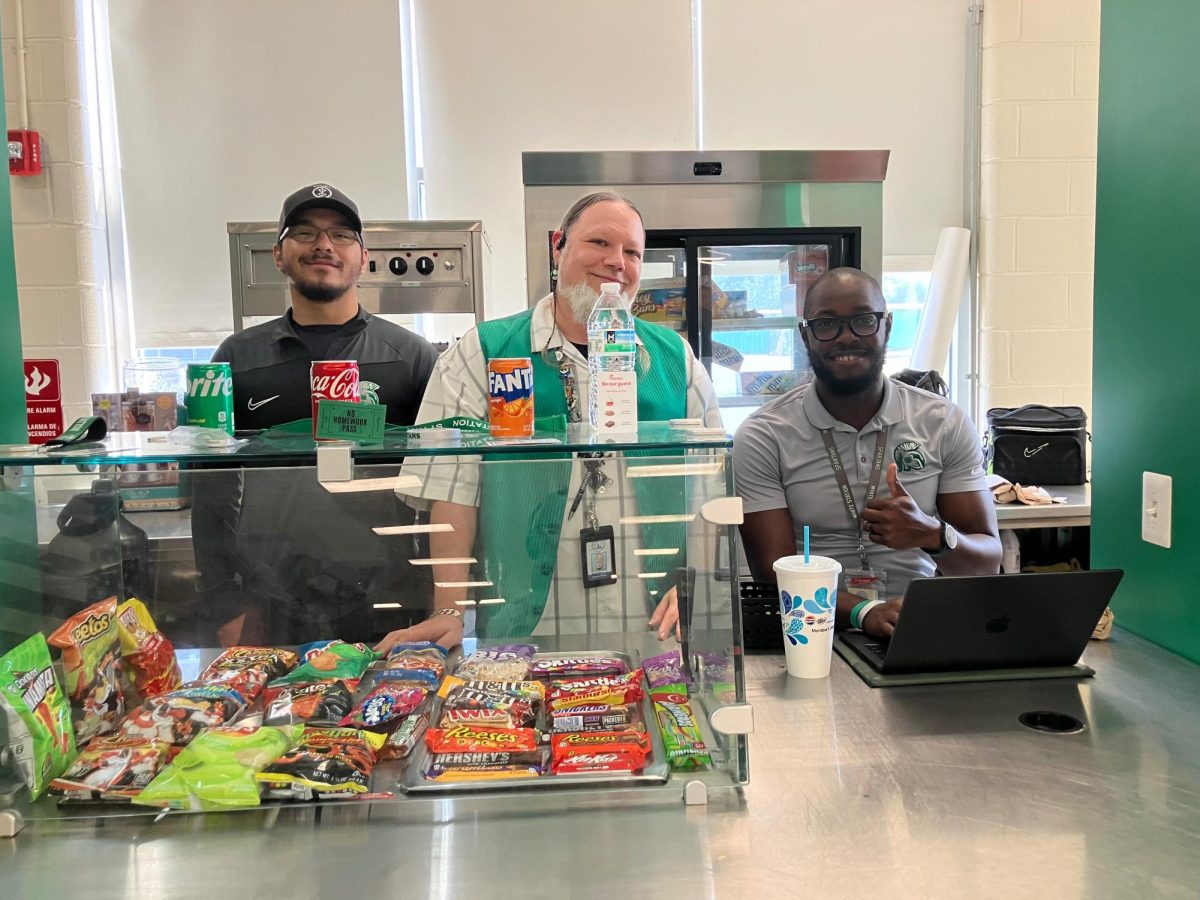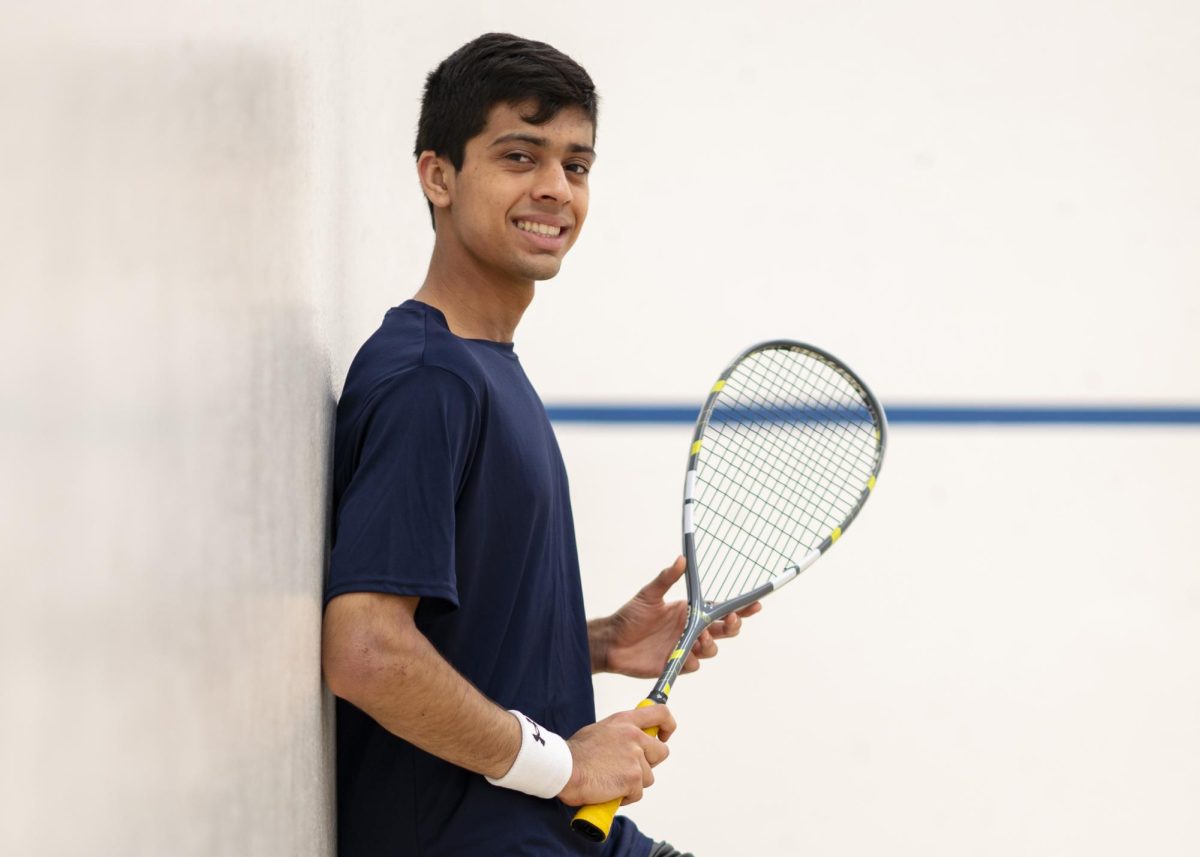Many athletes have an idol, from basketball star Stephen Curry to Olympic swimmer Michael Phelps. But for Varun Fuloria (12), it’s squash three-time World title holder Ramy Ashour — “The Artist.” Nicknamed for his smooth movements and precise finishes, Ashour carefully crafts each rally to his advantage, dialing up his aggression as needed. Varun tries to do just that in his squash matches, dragging out long rallies and pouncing on the ball when opportunity strikes.
Varun’s passion for the sport goes back nine years, when his mom first introduced him to racket sport. In the Under-11 (U11) age group, he was ranked number one in the US, and he is currently nationally ranked number seven in the Under-17 (U17) category. Recruited by Columbia University, which he will be attending in the fall of 2024, Varun looks forward to meeting his future teammates and developing new connections through the sport.
“To me, going there is a dream,” Varun said. “I really love the environment at Columbia. I love the campus, the team is super nice, and I’ve got some friends from the East Coast, so I’m really excited about that.”
He explains how the training and playing conditions differ from his current setting. Playing at Columbia will shift his focus from an individual to a group setting.
“It’s more of a team environment at a college, whereas right now it’s really individual,” Varun said. “When colleges play, there [are] nine players versus another nine players, so it’s really team-oriented, and you always have your teammates cheering for you when you’re playing.”
Over the summer, Varun traveled to Cologne, Germany to participate in the European Junior Open. Varun competed in the U17 category, which included 79 other players from around the world, many of whom were highly ranked in their respective countries. He recalls the difficulty of his third-round match, which tested his fitness and mental strength under pressure as the game came down to the wire in the fifth set.
“It was a really good experience to play a 90-minute match,” Varun said. “I left it all out on the court, and that’s all I can really ask for. I was trying to stay focused on the game and also not hit errors, but also thinking about trying to tire him out [and] trying to drag the game on.”
Varun acknowledges the game’s volatility, highlighting how every point is the difference between a win and a loss. Nevertheless, he appreciates the grit he developed as a result of the on-court challenges.
“For squash, mental [strength] is just a huge aspect of it because even one lapse of concentration can result in a lost game,” Varun said. “It’s really hard to come back if you’re down one-love or two-love. I just have to try to bring it back, which is always harder than starting strong in the first place.”
With matches lasting longer than an hour, he notes the connection between the physical and mental aspects of the game. He believes in the importance of keeping composure and patience during tense moments in order to tilt the score to his advantage.
“When I’m physically fatigued, it’s really important for my mind to be super clear,” Varun said. “I need to start thinking about things that I’ve worked on a lot in practice and bringing those to the court, so kind of simplifying the game, not going for anything crazy, keeping it basic and still trying to work those long rallies.”
Teammate and friend Shan Jolly, who also started playing in the U11 category, admires Varun’s strategic approach to the game. He especially appreciates Varun’s fluidity on the court and how he varies techniques to showcase his physical and mental prowess.
“He’s a really adaptable player,” Shan said. “He’s able to adjust his game depending on every opponent he plays and finds ways to win. It’s really important because no matter who his opponent is, he finds ways to overcome any style, any type [of player].”
Competing against players of different ages has helped Varun develop this skill, as well as form new perspectives within the sport. He finds that both his training and match-play experiences are key to maintaining and furthering his success in squash.
“I have to rely on my fitness and my game,” Varun said. “I’ve been playing players older than me, [and] I’ve been playing players who are younger than me, so I have a good amount of experience in terms of match play. It’s just about bringing that to tournaments and getting that all on the court.”
Although losses can lead to disappointment, Varun values finding the positives, regardless of the score or result. Through years of training and competing, he has developed the determination to make comebacks in times of setbacks.
“You can never be too far behind to still come back and win,” Varun said. “That’s something that I’ve tried to say to myself and tried to keep in my mind. When things aren’t going as well as they should be, trying to keep that in mind and keep going has definitely helped me throughout my high school career.”
This story was originally published on Harker Aquila on October 18, 2023.


